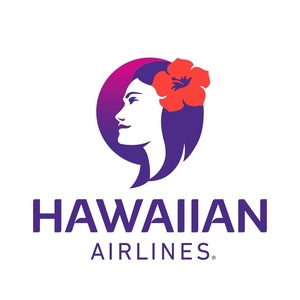Hawaiian Airlines, Gevo enter into SAF sales agreement

March 24, 2023
BY Hawaiian Airlines
Hawaiian Airlines on March 23 announced that it has reached an agreement with biofuel company Gevo Inc. to purchase 50 million gallons of sustainable aviation fuel (SAF) over five years. Gevo expects to supply the SAF from a facility to be constructed in the Midwestern United States and begin deliveries to Hawaiian's gateway cities in California starting in 2029.
"This offtake agreement gets us one step closer to achieving our goal of net-zero carbon emissions by 2050," said Peter Ingram, Hawaiian's president and CEO. "We intend to continue to invest in SAF, which will be pivotal in reducing our impact on the environment."
"Gevo is pleased to welcome Hawaiian Airlines to our customer family of airlines that are working hard to achieve their net zero goals," said Gevo CEO Dr. Patrick Gruber. "By counting all of the carbon, analyzed using Argonne's GREET (Greenhouse Gases, Regulated Emissions, and Energy Use in Transportation) method, we are working to help airlines realize these goals."
Advertisement
Argonne National Laboratory's GREET model measures the greenhouse gas life cycle impacts of fuels, from feedstock to production through combustion.
Gevo will produce SAF using residual starch from inedible field corn, grown using regenerative farming practices. The production process also will utilize renewable electricity and renewable natural gas, resulting in low-carbon fuels with substantially reduced carbon intensity (the level of greenhouse gas emissions compared to standard petroleum fossil-based fuels across their life cycle). Gevo's process is designed to maximize value and minimize waste by using the same acre of farmland to produce both animal feed and renewable fuels while sequestering atmospheric carbon through photosynthesis.
Advertisement
The fuel sales agreement is subject to certain conditions precedent, including Gevo developing, financing, and constructing the facility to produce the SAF contemplated by the agreement.
Hawaiian has launched several sustainability initiatives in recent years including a partnership with Par Hawaii, the state's largest provider of energy products, to study the commercial viability of producing SAF in Hawaiʻi.
Related Stories
CoBank’s latest quarterly research report, released July 10, highlights current uncertainty around the implementation of three biofuel policies, RFS RVOs, small refinery exemptions (SREs) and the 45Z clean fuels production tax credit.
The U.S. Energy Information Administration maintained its forecast for 2025 and 2026 biodiesel, renewable diesel and sustainable aviation fuel (SAF) production in its latest Short-Term Energy Outlook, released July 8.
XCF Global Inc. on July 10 shared its strategic plan to invest close to $1 billion in developing a network of SAF production facilities, expanding its U.S. footprint, and advancing its international growth strategy.
U.S. fuel ethanol capacity fell slightly in April, while biodiesel and renewable diesel capacity held steady, according to data released by the U.S. EIA on June 30. Feedstock consumption was down when compared to the previous month.
XCF Global Inc. on July 8 provided a production update on its flagship New Rise Reno facility, underscoring that the plant has successfully produced SAF, renewable diesel, and renewable naphtha during its initial ramp-up.
Upcoming Events










